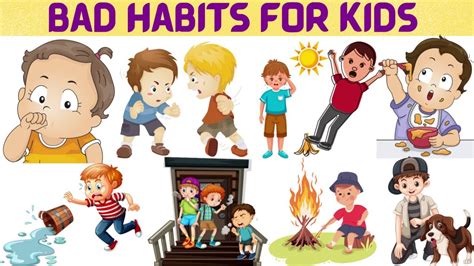
Living with adult children can strain family relationships. Experts say parents who want to avoid resentment and maintain healthy connections with their grown kids should re-evaluate certain habits, including over-involvement, financial enabling, and a failure to respect boundaries.
Many parents dream of a close, supportive relationship with their adult children, but the reality can sometimes fall short, leading to friction and frustration. According to therapists and relationship experts, some parental behaviors, often rooted in good intentions, can inadvertently damage these relationships and create distance. Identifying and addressing these habits is crucial for fostering a positive and enduring connection with grown children. Parents should focus on establishing clear boundaries, respecting their children’s autonomy, and transitioning from a directive to a supportive role. By making these adjustments, parents can pave the way for a more harmonious and fulfilling relationship with their adult kids.
Habits That Can Harm Relationships with Adult Children
Several key behaviors can contribute to strained relationships between parents and their adult children. These include:
- Over-Involvement: This involves excessive interference in the adult child’s life, often manifesting as unsolicited advice, constant check-ins, and attempts to control their decisions.
- Financial Enabling: Providing excessive financial support, especially when it hinders the adult child’s independence and responsibility, can create resentment and dependency.
- Lack of Boundaries: Failing to respect the adult child’s privacy, personal space, and autonomy can lead to conflict and a breakdown in communication.
- Criticism and Judgment: Habitually criticizing the adult child’s choices, lifestyle, or partner can damage their self-esteem and erode the relationship.
- Emotional Manipulation: Using guilt trips, emotional blackmail, or other manipulative tactics to control the adult child’s behavior can create resentment and distrust.
The Importance of Establishing Boundaries
One of the most critical aspects of maintaining a healthy relationship with adult children is establishing clear and respectful boundaries. Boundaries define the limits of acceptable behavior and help to maintain autonomy and respect in the relationship.
“Boundaries are essential for any healthy relationship,” explains Dr. Vivian Greene, a licensed marriage and family therapist. “They create a sense of safety and respect, allowing each person to feel comfortable and secure in the relationship.”
Setting boundaries can be challenging, especially for parents who are accustomed to being in a directive role. However, it is crucial for fostering a sense of independence and responsibility in the adult child. Some examples of healthy boundaries include:
- Respecting Privacy: Avoid snooping through their belongings, social media accounts, or personal communications without their permission.
- Allowing Decision-Making: Refrain from making decisions for them or interfering in their choices, even if you disagree with them.
- Avoiding Unsolicited Advice: Offer advice only when it is explicitly requested and avoid imposing your opinions on them.
- Respecting Time and Space: Be mindful of their time and avoid overwhelming them with constant calls, texts, or visits.
- Managing Expectations: Have realistic expectations about their availability, involvement in family activities, and financial contributions.
The Pitfalls of Financial Enabling
While providing financial support to adult children can be a loving gesture, excessive or inappropriate financial assistance can have detrimental effects. Financial enabling occurs when parents provide financial support that hinders the adult child’s ability to become independent and responsible.
“Financial enabling can create a cycle of dependency, where the adult child becomes reliant on their parents for financial support and lacks the motivation to become self-sufficient,” warns Dr. Laura Markham, a clinical psychologist and parenting expert.
Signs of financial enabling include:
- Providing Funds for Non-Essential Expenses: Covering expenses such as entertainment, vacations, or luxury items, rather than necessities like rent or groceries.
- Rescuing Them from Financial Problems: Bailing them out of debt, paying their bills, or providing loans without expecting repayment.
- Supporting an Unrealistic Lifestyle: Enabling them to maintain a lifestyle that they cannot afford on their own.
- Ignoring Their Lack of Effort: Continuing to provide financial support despite their lack of effort to find employment or manage their finances responsibly.
Instead of financial enabling, parents can provide support in ways that promote independence and responsibility, such as:
- Helping with Education or Training: Investing in their education or vocational training to improve their job prospects.
- Providing Guidance on Budgeting and Financial Management: Teaching them how to create a budget, manage their finances, and save for the future.
- Offering Temporary Assistance During Difficult Times: Providing short-term financial assistance during periods of unemployment or unexpected expenses.
- Encouraging Self-Sufficiency: Supporting their efforts to find employment, earn their own income, and become financially independent.
The Impact of Criticism and Judgment
Constant criticism and judgment can be incredibly damaging to the relationship between parents and adult children. It can erode their self-esteem, create resentment, and lead to a breakdown in communication.
“Criticism and judgment can make adult children feel like they are constantly falling short of their parents’ expectations, which can be incredibly disheartening,” explains Dr. Susan Forward, a psychotherapist and author of “Toxic Parents.”
Parents who habitually criticize their adult children may do so out of a desire to help them improve or avoid mistakes. However, the impact of criticism is often the opposite of what is intended. Instead of motivating positive change, it can lead to defensiveness, withdrawal, and a desire to avoid contact with the critical parent.
Instead of criticizing, parents can offer constructive feedback in a supportive and encouraging manner. This involves:
- Focusing on Specific Behaviors, Not Character: Addressing specific actions or choices, rather than making general statements about their character or personality.
- Using “I” Statements: Expressing your concerns or feelings using “I” statements, such as “I feel worried when…” rather than “You always…”
- Offering Suggestions, Not Demands: Providing suggestions or alternatives, rather than demanding that they change their behavior.
- Acknowledging Their Strengths and Accomplishments: Recognizing and praising their positive qualities and achievements.
- Listening Empathetically: Actively listening to their perspective and showing empathy for their feelings.
The Dangers of Emotional Manipulation
Emotional manipulation involves using tactics such as guilt trips, emotional blackmail, or playing the victim to control another person’s behavior. This can be incredibly damaging to any relationship, especially between parents and adult children.
“Emotional manipulation can create a sense of obligation and guilt in the adult child, making them feel responsible for their parents’ happiness or well-being,” explains Dr. Harriet Lerner, a clinical psychologist and author of “The Dance of Connection.”
Examples of emotional manipulation include:
- Guilt Trips: Making the adult child feel guilty for not spending enough time with them or meeting their expectations.
- Emotional Blackmail: Threatening to withdraw love, support, or approval if the adult child does not comply with their demands.
- Playing the Victim: Portraying themselves as helpless or vulnerable to elicit sympathy and control the adult child’s behavior.
- Triangulation: Involving a third party, such as another family member, to pressure the adult child to conform to their wishes.
Instead of resorting to emotional manipulation, parents can communicate their needs and feelings in a direct and honest manner. This involves:
- Expressing Their Needs Clearly and Respectfully: Communicating their desires and expectations without resorting to guilt or coercion.
- Taking Responsibility for Their Own Feelings: Acknowledging their own emotions and avoiding blaming the adult child for their unhappiness.
- Respecting the Adult Child’s Autonomy: Recognizing that the adult child has the right to make their own choices and live their own life.
- Seeking Professional Help if Necessary: Considering therapy or counseling to address underlying emotional issues or improve communication skills.
Transitioning from Parent to Friend
As children grow into adulthood, the parent-child relationship needs to evolve from a hierarchical structure to a more egalitarian one. This involves transitioning from a directive, authoritative role to a more supportive and friend-like role.
“The goal is to move from being a parent who tells their child what to do to being a trusted advisor and confidant,” explains Dr. Terri Apter, a social psychologist and author of “What Do You Want From Me?”
This transition requires parents to:
- Respect Their Adult Child’s Autonomy: Recognize that they are no longer responsible for making decisions for their adult child.
- Offer Support and Encouragement: Provide emotional support and encouragement without being intrusive or controlling.
- Listen Empathetically: Listen to their concerns and perspectives without judgment or criticism.
- Share Their Own Experiences and Wisdom: Offer advice and guidance based on their own experiences, but avoid imposing their opinions.
- Enjoy Their Company: Spend time together engaging in activities that you both enjoy.
Letting Go and Allowing Independence
One of the most challenging aspects of parenting adult children is letting go and allowing them to live their own lives. This involves accepting that they will make their own choices, even if you disagree with them, and trusting that they will learn from their mistakes.
“Letting go is an essential part of the parenting process,” explains Dr. Wendy Mogel, a clinical psychologist and author of “The Blessing of a Skinned Knee.” “It allows adult children to develop their own sense of identity and independence.”
Letting go does not mean abandoning your adult children or ceasing to care about them. It means trusting them to make their own decisions, respecting their autonomy, and offering support without being intrusive or controlling. It’s about understanding that their journey is their own and that your role is to be a supportive presence in their life, not the director of their play.
Embracing a New Chapter
The relationship between parents and adult children is a lifelong journey that evolves and changes over time. By understanding the potential pitfalls and adopting healthier habits, parents can foster a positive and enduring connection with their grown kids. This involves establishing clear boundaries, respecting their autonomy, offering support without being controlling, and transitioning from a directive role to a more supportive and friend-like relationship.
Ultimately, the key to a successful relationship with adult children is to embrace this new chapter with open hearts and minds, allowing them to navigate their own lives while remaining a source of love, support, and guidance. Remember, it’s not about holding on tight, but about standing beside them as they take flight.
Frequently Asked Questions (FAQ)
1. What constitutes “over-involvement” in an adult child’s life?
Over-involvement manifests as excessive interference in the adult child’s life. Examples include:
- Unsolicited Advice: Constantly offering advice even when it’s not requested.
- Frequent Check-ins: Excessively calling or texting to monitor their activities.
- Decision Interference: Attempting to control or influence their major life decisions (career, relationships, finances).
- Boundary Crossing: Showing up unannounced or intruding on their privacy.
- Micromanaging: Getting involved in the details of their daily routines.
This behavior, while often well-intentioned, can undermine the adult child’s sense of autonomy and competence, leading to resentment and strained relationships.
2. How can parents differentiate between providing helpful financial support and enabling their adult children?
The key difference lies in whether the financial support fosters independence or dependence.
- Helpful Support: Temporary assistance during emergencies (job loss, medical bills), investment in education or skills training, guidance on budgeting and financial management. This type of support aims to help the adult child become self-sufficient.
- Enabling: Regularly covering non-essential expenses (entertainment, luxury items), bailing them out of debt repeatedly, supporting an unrealistic lifestyle they can’t afford, and continuing financial assistance despite a lack of effort to become self-supporting. This perpetuates dependence and hinders their ability to take responsibility for their finances.
The focus should be on empowering the adult child to manage their own finances rather than creating a safety net that prevents them from developing financial responsibility.
3. What are some practical ways to establish and maintain healthy boundaries with adult children?
Establishing healthy boundaries involves clear communication and consistent enforcement:
- Open Communication: Have a direct and honest conversation about what boundaries are important to you and listen to their boundaries as well.
- Respect Privacy: Avoid snooping through their belongings, social media, or personal communications.
- Time and Space: Respect their time and avoid overwhelming them with calls or visits. Ask before you visit and be mindful of their schedule.
- Unsolicited Advice: Refrain from giving unsolicited advice. Offer guidance only when asked and be prepared to accept that they may not take your advice.
- Financial Boundaries: Set clear limits on financial assistance. Decide what you are willing to contribute and stick to it. Don’t feel obligated to bail them out of every financial crisis.
- Consistency: Enforce your boundaries consistently. If you allow exceptions, it undermines the boundary and can lead to resentment.
- Be Prepared for Resistance: Understand that your adult child may initially resist boundaries, especially if they are used to getting their way. Stay firm but respectful.
4. How can parents address their own emotional needs without resorting to emotional manipulation of their adult children?
Parents need to develop healthy coping mechanisms and support systems outside of their relationship with their adult children:
- Acknowledge Your Feelings: Identify and acknowledge your own emotions without blaming your adult child.
- Seek Support: Develop friendships, hobbies, and other activities that provide emotional fulfillment. Join support groups or seek therapy if needed.
- Direct Communication: Communicate your needs and feelings directly and respectfully, without resorting to guilt trips or emotional blackmail.
- Take Responsibility: Take responsibility for your own happiness and well-being. Don’t expect your adult child to be responsible for your emotional state.
- Therapy: Consider therapy to address any underlying emotional issues or improve communication skills.
- Focus on the Positive: Focus on the positive aspects of your relationship with your adult child and appreciate their contributions to your life.
5. What are some signs that the parent-adult child relationship is becoming toxic, and what steps can be taken to address it?
Signs of a toxic relationship include:
- Constant Criticism: Persistent negativity, judgment, and belittling.
- Lack of Respect: Disregard for boundaries, privacy, and autonomy.
- Emotional Manipulation: Guilt trips, emotional blackmail, and playing the victim.
- Control: Attempts to control the adult child’s life and decisions.
- Resentment: Feelings of anger, bitterness, and resentment on both sides.
- Communication Breakdown: Difficulty communicating openly and honestly.
- Avoidance: One or both parties avoiding contact.
Steps to address a toxic relationship:
- Acknowledge the Problem: Recognize and acknowledge that the relationship is unhealthy.
- Set Boundaries: Establish and enforce clear boundaries.
- Limit Contact: Consider limiting contact with the parent, especially if the behavior is consistently harmful.
- Seek Therapy: Both the parent and the adult child may benefit from individual or family therapy.
- Communication: If possible, try to communicate your feelings and needs in a calm and respectful manner.
- Detach with Love: Accept that you cannot change the other person’s behavior and focus on protecting your own emotional well-being. This may involve distancing yourself from the relationship to some degree.
- Forgiveness (for yourself): Forgive yourself for any perceived shortcomings in the relationship and focus on moving forward.
- Acceptance: Accept that the relationship may never be perfect and adjust your expectations accordingly. It’s okay to want to improve things, but be prepared to accept that things may not always change dramatically.
In summary, maintaining a healthy relationship with adult children requires a shift in perspective from a directive parenting role to a supportive and respectful friendship. It involves setting clear boundaries, avoiding financial enabling, communicating effectively, and allowing them the autonomy to live their own lives. By embracing these principles, parents can foster a positive and enduring connection with their grown kids.









